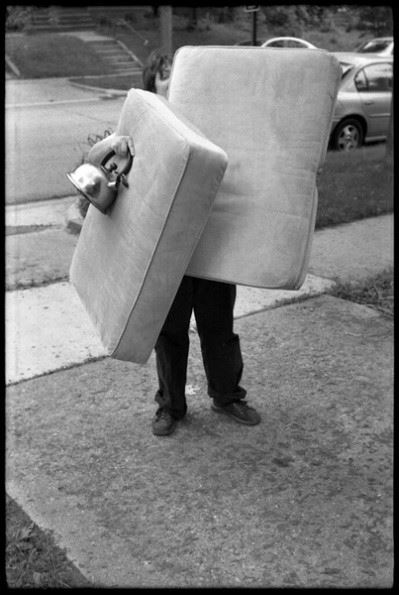By Monica Rhodes
NUA Volunteer and Owner of Monday Wash Furniture
I know I was not alone, 15 or 16 months ago, wondering if the emerging pandemic meant “curtains” for my fledgling upholstery and furnishings business. Workshops around the world scrambled to adjust to the health threat posed by interpersonal contact and the consequent restrictions that soon followed. Upholsterers reached out to one another on forums like the Professional Upholsterer’s Network (PUN) and during NUA Community Meetings to share information about Paycheck Protection Program (PPP) and other such loans and grants. We all buckled down, adjusted our work spaces and protocols, continued to work hard, and hoped for the best.
1. 
That hope actually came to fruition. Though many industries (particularly travel, hospitality, dining and entertainment) sputtered and struggled, home improvement and interior décor related enterprises flourished. As so much of the world turned inward, millions of stressed-out people sequestered at home began to fixate on creature comforts and practical adaptations that might make working and schooling children at home more tolerable. They took a long, deep look at their living spaces thinking: If this is where I’m going to spend nearly all of my time for the foreseeable future, it better be as comfortable and appealing as possible. Interior decorating/re-decorating became one of the few ways to achieve a change of scenery. It provided a creative outlet, space to roam if only in imagination, and a sense of control when everything else felt out of control. People who found themselves with extra disposable income originally intended for things like travel and eating out, started investing that money into their living spaces.
There is an old adage: Be careful what you hope for. The upholstery trade is booming now, in no small part due to the cultural and societal shifts that have occurred as a result of the pandemic. On the forums, talk of PPP loans has been replaced by talk of managing unruly clients and dealing with work overload. Several weeks ago, I read a thread in which one upholsterer described the scene outside his shop as Night of the Living Dead. He was booked out for many months. He’d done everything he could to dissuade potential clients (including locking his shop door and hanging a sign stating clearly that he was not accepting new work). But still they came dragging their chairs and ottomans behind them, rattling the door and peering with haunted eyes through the glass around the sign. Meanwhile, the upholsterer had retreated to the back shadows of his shop so as not to be seen, which would only rile the furniture-toting zombies up.
2. 
I found this image hilarious, but it resonated with me. So many of my upholstery acquaintances are suffering tremendous stress, some working 80-hour weeks, many booked out for six months, or a year, but still trying to squeeze particularly desperate clients in. Some home-based upholsterers I know of, including the NUA’s own Rachel Fletcher, have had wanna-be clients show up on the doorsteps of their private homes - with their furniture - after being turned down by phone.
3. 
The situation has been exacerbated by concurrent supply chain shortages and disruptions. Foam, Dacron, fabric, adhesive, and lumber are among the materials in short supply. Prices are up, availability is down, and delivery is sporadic, delayed and increasingly costly. Covid-19 has disrupted the means of production, as has harsh and unprecedented weather like the epic snow and cold in Texas last February and March. Some larger shops have been able to stockpile foam and other necessary materials, but this has resulted in even longer delays for small shops that lack the storage space and capital to purchase large quantities in advance of payment. The result: upholsterers must tell clients who have waited several months for their turn that the work may be further delayed for unspecified lengths of time.
So, what to do?
For better or for worse, things might settle down as normalcy returns. People will start spending their money on travel and other Covid-verboten luxuries again. Their gazes will gradually adjust to meet the horizon beyond their living rooms. If, when and how this will impact our industry are big unknowns. If we have learned anything, it is that we must be prepared for flux. Personally, I think the boom will continue for a good while. The pandemic has fundamentally changed the way people perceive, experience and value many things. Our homes will remain havens from known and yet-to-be known threats and disturbances. Furthermore, there is serious, widespread and growing interest in reusing furniture. Fastcompany.com recently published an article titled Used furniture is about to become a $16.6 billion business. Even Ikea is getting in on it. In the article, Anna Brockway, co-founder of the furniture resale website Chairish, notes that “Chairish grew very quickly during the pandemic with sales increasing between 70% and 120% every month compared to the year before.” The public has become more knowledgeable about, and comfortable accessing, myriad on-line avenues for purchasing quality vintage furniture – and they’re going to need upholsterers.
The immediate reality is that we have much work to do. Perhaps too much. Several upholsterers I reached out to have graciously shared their coping strategies including: raising prices, booking clients far out, vetting estimates using on-line forms that sift out “tire-kickers”, requiring clients to deliver and pick-up their own pieces, not promising definitive completion dates, referring potential clients to other shops, partnering with other upholsterers to share work load, and hiring skilled and/or unskilled help (for teardown, etc.). Long-time upholsterer Dennis Locke says, “The pandemic has taught me to sit back and let the game come to me. I found that many of my customers who previously claimed they were unable to handle their own pick-up and delivery were suddenly finding a way.” Rhonda Shanahan of The Whimsical Chair committed to “work smarter not harder.” Streamlining all of her processes, she added a detailed estimate form to her website. “It’s the only way I will give someone an estimate,” she says. Rhonda also turns down the jobs she doesn’t really want. Drudgery does nothing to alleviate stress. Another upholsterer makes space by keeping weekends to herself – no quotes, phone calls or work emails, “and I’m not shy to tell people the contract is delayed. It’s me, my family and mental health before others.”
In researching this article, pricing came up repeatedly. Almost across the board, established upholsterers have been able to raise prices with little to no push back from clients. Given clients’ willingness to pay, raising prices doesn’t do a lot to stem workload though it makes the added stress more palatable. The other resounding theme was communication, which can actually make workload more manageable. Open, clear and concise communication yields the best results. Don’t waver. Don’t promise a turn-around time you may not be able to keep. State and stick to your protocols. Be clear about your scheduling. Are you strictly first in the door, first out? Do certain clients receive priority? Regardless, don’t cave and offer to squeeze someone in just because that person is pleading or pushy. In the May/June 2021 issue of issue of the Drapery and Design Digital Digest, purveyor of window treatments, Merrill Y Landis (MYL), LTD, states explicitly, “Demand is way up. Workroom space is way down. Delivery times are increasing.” MYL maintains a first-in, first-out policy but recognizing that, occasionally, there is legitimate rationale to push a job through as quickly as possible, offers a priority service system for a fee that is large enough to discourage casual requests. Priority service is not guaranteed. Requests are vetted and granted after serious consideration to ensure that flow remains smooth and that customers remain happy.
In addition to scheduling, be up front about supply chain issues. Let clients know there may be unforeseen delays. Consider putting this in writing on the front end, so there will not be room for dispute later on. Forgoing a definitive completion date will avoid undue pressure should things go awry. If delays occur, let clients know when and why and that you are doing your best to complete the work in a timely manner. Do not accept work from a person who blatantly disregards your protocols.
4. 
If you show up on the doorstep of my private home while I am eating dinner then, no, I will not reupholster the sofa you have dragged onto my porch. Protect your boundaries. Don’t you dare push that sofa into your garage because you “might be able to squeeze it in”.
This is not the time to make concessions. This is a time to consider the changing landscape, reflect on priorities, strategize and strive to strike a healthy balance. Plenty of people in the trade will lend you an ear, if not a hand, in safe spaces like the PUN and the NUA. As a group, we are resilient and resourceful and we have a host of solid ideas and strategies to share. If we reach out to support one another, there is hope for a less stressful tomorrow.
---------------------------------------------------------------------------------------
Photo attributions:
- "under pressure" by eschipulis licensed under CC BY-SA 2.0
- "Zombies at the door aren't welcome tonight." by kennethkonica is licensed under CC BY-ND 2.0
- "Alexis Helps Move" by Voxphoto is licensed under CC BY-NC-ND 2.0
- "Gaston Says... Talk to the Hand" by opencontent is licensed under CC BY 2.0